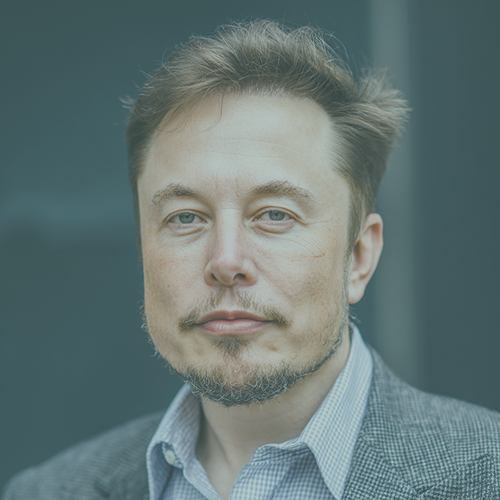Kyle Lagunas (01:33): I wish it was like a really happy moment of inspiration. But instead it was looking at one of the hardest things that HR has to deal with and wondering if they were prepared. In 2023, we know that this crazy, like all cylinders or firing on all cylinders hiring came to an abrupt halt. And not just that we actually did a complete about face in many areas we had over hired. And so layoffs were and still are happening. And I was talking to our friend Laurie Ruettimann, my question was, does HR actually have the data that it needs to inform and advise decisions beyond just like layoffs isn't just a cost cutting exercise.
Or it can't be limited to that, because you and I know there are downstream effects, like impact on of course, employee morale, but also performance and engagement. And I just didn't know if HR could do anything else besides just go into that compliance mode, make sure that we were letting people go in a respectful and safe way, and then giving them an appropriate severance. I think that's just where everybody went.
And I was wondering, are we actually in the room saying, hey, like, this is what performance really looks like, and here's what like that impact will have. So I felt like it was a knowledge gap. And I wanted to go and test it.
Felicia Shakiba: That makes sense to me. I've done a number of programs where we're looking to reduce headcount. And I've had to really coach leaders on how to make those decisions fair and equitable. I think it's a really tough challenge for a lot of leaders to do.
How did you measure the impact that programs were having in different areas like retention, engagement, etc?
Kyle Lagunas (03:30): Our primary tool was a survey. And we surveyed about oh, I think 216 HR leaders in North America, by the way, and that's just the limitation of my survey tool. But we asked them to self report. And we asked them to report their overall effectiveness. We asked them to share their practices reporting cadences how data is captured, etc. But what I did was I segmented out those companies who rated themselves at the highest level of performance effectiveness, like those who noted that they were very effective in performance management.
And I compared those responses against those who were not very effective, basically, all others. And that was where the proof started to come out.
The big scary thing when I first looked at the survey data was that 80% of the HR leaders that we surveyed said that they were effective or better. And I was like, 'Well, I don't think that's right.'
You know, I was like, 'Did I get really bad surveys, sample data?' But then so I segmented it out, and I was like, Oh, here we go. The people who did rate themselves at the very top, which was like 30% of the survey, versus those that were in the all other group. There were some really interesting differences. And I have some stats that I'd like to share with you.
Felicia Shakiba: Please.
Kyle Lagunas (04:47): So for example, we asked all the survey respondents like rate the output of or the capability of your performance management programs across these certain areas. One question was how well is your performance management program building trust with employees and confidence in your company's employee value proposition. Right? We want to know like, how equitable do people feel like this is?
And those that were in the very effective cohort, again, 30% of those surveyed respondents, 70% said that they were very effective in building employee trust. The all other cohort 19% said that they were very effective in building employee trust and confidence. So like, it's all self reported.
But then you start to look at the differences in outcomes of these programs, you're like, Okay, I actually can quantify Yeah, those who are saying they're very effective, they really are a cut above so.
So what did you discover from analyzing the differences between very effective versus not effective performance management programs?
Kyle Lagunas (05:52): So couple of things that we wanted to test and that, honestly, I was bummed to find out how our hypotheses were right. So you and I, again, we are progressive HR leaders, we know that performance is not an isolated function, right? It is not an isolated people process. We know that the effectiveness for performance, it's going to have connection to an impact on other HR programs and initiatives.
Felicia Shakiba: Absolutely.
Kyle Lagunas: Like employee development and employee career growth, employee learning and development, it's going to have...
Felicia Shakiba: Succession planning.
Kyle Lagunas (06:26) ...succession planning. It's going to have an impact on employee engagement and employee retention. So a lot of different things are connected to performance. Again, our friend Laurie Ruettimann, who by the way, was an adjunct analyst on this project, she says in HR, everything is performance. And if you don't think it is, you're wrong.
Felicia Shakiba: I love that you brought that quote up, because that is exactly what I talk to leaders all the time that it all drills down to performance, everything does. And it's performance is the bedrock of every other program you have in your organization. So I'm so glad you brought that quote in.
Kyle Lagunas 07:05): So, okay. And like you and I are like-mind. And by the way, we're right. And here's how I know that. So I asked this survey asked this question in two ways. How important is performance management related to these, each of these processes and programs? - diversity, equity, inclusion, talent, retention, like each of them rated them? And then I asked them, how impactful is your performance management program in these areas?
So two questions, how important is it to be integrated? And how impactful is it in these areas. And across the board, again, we're seeing that the companies that are in the very effective cohort, they are saying that it is for every one of those different processes and programs, it is very important that performance has an impact on them, that it is driving outcomes in them, whereas those in the not very effective, they are all over the place.
Some would say eh, not a big deal. Some would say yeah, it is important, but still, by and large, the very effective group was placing a heavy emphasis on integration of performance with these other programs.
Felicia Shakiba (08:08): Interesting. I love that.
So walk me through the steps that the organizations took to create this truly effective performance management solution. How did they do that integration?
Kyle Lagunas 08:08
The other question was how much of an impact is performance having in these areas? And no surprise, the companies that are being intentional in prioritizing integration of performance and other programs are having more impact in those areas in an outsized way? I mean, we're talking about 2x, and 3x, more impact in pay equity, and in talent retention, and employee career growth.
And like, that's all really important stuff, right? The difference is just like, again, when I first looked at the survey data, it said 80% felt that they were pretty effective and performance, and I was like, 'yikes.' But when you start to peel back the onion, you find out that there is no such thing as good enough and performance management.
Kyle Lagunas (09:06): This was where I was like, starting to question was I structuring the study in the right way. Because if I looked at the comparing these top two cohorts and ask them, what changes do they make in technology in performance or rewards and recognition? What changes do they make to process? There really wasn't a notable difference in the work that the two had taken on in the last, at least at that level, over the last year. Where we did see a major difference was in the quality of the data that they were both capturing and using.
So we asked them to rate the quality of the data they had across a couple of different qualities. How trustworthy was it? How comprehensive was it? How actionable was it? And, how much did they trust it? And again, it's just like in every single one of these areas I'm starting to look at meaningful differentiation points, if you don't have good performance data, how good can your performance management program be? Right?
And so I was trying to look at this foundational piece that went beyond processes specific practices to look at outcomes.
For the very effective groups, their data was very comprehensive, it was very trustworthy, is very actionable. And we're talking about all others, including this, like 40% of companies that rated themselves as effective performance management programs, were not trustworthy, they didn't trust their data.
They didn't feel like it was actionable. They didn't feel like it was comprehensive. And it's like, Well, no wonder. And so, again, I really want to drive this point home, because there was just such a large percentage of survey respondents that did rate their programs as effective. And if there is this big gap in the quality of your data, how effective can your performance management be, because I just don't feel like you can have an equitable performance management program.
I don't think that you can have an accurate performance management program. This foundational layer was just completely missing. And it was it an anomaly. Because again, I'm looking at the outcomes of performance management programs between these two cohorts in terms of like building trust with employees and empowering managers, and the foundational pieces are missing, and so are these nice to have outcomes, right?
Why do you think there is such a disconnect between how HR leaders perceive effectiveness versus the actual results?
Kyle Lagunas (11:32): God, I love this question. Tell me how much this resonates with you. You know what? It's not perfect, but it gets the job done, and it's good enough. I have many of the things I need to worry about right now. Have you ever said that about any of your programs in HR?
Felicia Shakiba: That just makes me cringe in the way that if that is the response, I'm thinking, the data must be so dirty, that an unreliable and not credible or valid that it doesn't even matter what you do with your solution, because if the data is bad, then you're really just not really doing much.
Kyle Lagunas (12:08): I also feel like out of sight out of mind. I mean, listen, Laurie, and I want to really back and forth, when wee were trying to put the narrative together for this research. We didn't want it to be condemning HR leaders, we do know that there is extremely high levels of burnout in the HR organization, they have been dealt a really dirty hand over the last half of a decades specifically, I really think part of it, they've got so many other things to do. They have so much to deliver on.
And this is just like, you know what, my boss is not breathing down my neck for better performance management programs right now. I'm just gonna save that one for another day. I feel like it's more like fatalistic than it is just completely cynical.
Felicia Shakiba: The empathy makes complete sense. We did an episode on HR burnout, and I've written actually a couple articles on that. And it's absolutely true. There's been a lot of HR burnout, especially since COVID and all of the other things that go along with that.
Kyle Lagunas (13:07): And by the way, we didn't just do the survey, we actually ended up interviewing 10 in seat HR practitioners and a couple of HR consultants. And we did find that, that was representative that people were just thinking like the good enough mentality is not necessarily laziness. It really is just like fatalistic like, I've got to do a bunch of other stuff.
So I think that that's the big gap at the same time. Again, if we look at like how much work these organizations have been doing in performance, there has been a flurry of activity around enhancing performance management programs, and, like solutioning, with more purpose built technology. So I think people are doing some work, maybe in the timeline, they are thinking we just implemented a new thing.
And so maybe we're going to wait for this newly designed programs to mature. So there might be that to it. But either way, I'm not going to just say like HR is just asleep at the wheel. But I do hope that this research is putting a spotlight on the areas that maybe they could focus their attention on to make meaningful improvements. And the data piece is just a really big one for me.
What surprised you the most from the interviews with subject matter experts about the good enough mindset hindering improvements?
Kyle Lagunas (14:20): Oh, my God, well, this is actually probably connected to the data piece.
Almost all of the HR leaders that we surveyed their performance management workflow, like the portal that they would use to capture feedback was all open text. So there was actually...so there was no like numerical- they might assign a number at the end overall, or in certain areas, but I don't know if you've ever worked somewhere that had a nine box. Normally they would do the review and then get to a room and calibrate with their peers, like, where are we putting all of our people? Right? And that's, I hope I can say this on your podcast, that's fu*&^% up.
But especially because the only numeric in a nine box like environment is the only score that matters is that the square that you end up in. Right? So I think part of it like that was just astounding to me was that like, managers are leaving open text feedback for everything. And so there is no quant and so of course you can't report on any of this. And so of course, it's not comprehensive.
How could anybody download all that information if it's all qualitative? Imagine 200,000 employees... like what?
Kyle Lagunas (15:38): How can a business or an HR business partner for an entire division actually roll up reporting on any nuances that exist in employee performance for their whole business unit? And by the way you and I know there's a ton of nuance in employee performance. That was a real wake up call for me it was, but it's also because I think that might also be something that we can solve, right?
Felicia Shakiba: Absolutely.
Kyle Lagunas: Like, I think that is something, yeah, leave the open text, but still have for each of these questions like actual hard quant scoring, you know, 123 or four?
Felicia Shakiba: Yeah, the qualitative data tells the story behind quantitative data, right, and we could report on quant all day, but at the end of the day, it's like, what are those factors and variables making that number realistic? I mean, both is important. Right? Yeah. And that makes sense.
How can prioritizing the right data help address some of the issues you uncovered?
Kyle Lagunas (16:34):
In order to prioritize, I think you have to know who is this primary stakeholder, right?
Like everyone consumes different data, and they consume data differently. And so I think the the first question you have to ask if you're trying to optimize your performance management program is, Who am I prioritizing as my stakeholder for this?
Again, looking at the two cohorts of very effective versus not very effective, the very effective organizations are prioritizing managers and employees. And the not very effective companies are prioritizing executives and senior leadership. And so there's just very different reporting that comes out of that, right. But there's also very different data anyway. So start with your stakeholder audience.
And if you look at the manager, and you look at the employee, you think, what data do I need to give them? Or how do I get the data that I need from them? Those are two questions, right? And then you start to build your process from that. And I think that is ubiquitous. We didn't set out with this research to say, here are the best practices at a process level.
Here's what the best performance programs look like, in terms of the questions that you asked now, it really is looking at the highest level, what makes a difference? You need to know who is your primary stakeholder. And in performance, especially these days, you really do need to be focused on empowering the people doing the work, and not just informing the people that are managing the business.
And how can organizations prioritize the right stakeholders and their programs?
Kyle Lagunas (18:13): Having hard conversations, I think that there is a bit of psych work to be done and like IO psychology and think like, alright, we know that we are going through an immense growth periods in that growth is M&A or something. So we need to make sure that we are keeping people informed to the degree that we can, and that we need to make sure that we're working continuously to integrate culture and you know, like, blah, blah, blah. You just need to know the business essentially, is where I say, where are you at? What are you trying to get done?
And in order to get that done, how, what role do the employees and managers play? Because I am going to say, I think that employees and managers need to be your primary, whether it's one and two, or two and one, however, you or whatever. Look at what they need, but also look at what you need to get out of them. You like - employee performance, it shouldn't just be about management, it should be about empowerment and enablement from an HR perspective.
So how are you going to facilitate that? Right? And at the same time, you also do need to know like, what cadence of reporting do I need to establish? Performance review process might happen once a year, but performance management we have learned right is an always ongoing thing. And so if it's always on, and it's always going, how frequently is HR reporting out on these conversations, right.
I have another stat for you here. If we asked does HR track the outcomes and or takeaways of performance discussions that regularly occur between managers and employees? Pretty simple question, right? If you look at the very effective group, I would assume that HR would be all over it, but you and I know that it doesn't always happen. Right?
Felicia Shakiba: Right.
Kyle Lagunas (19:56):
60% of those in the very effective cohort are tracking that they said, 'Absolutely we are tracking that.
28% of all others say that they are absolutely tracking that. There is the reporting piece really is, I think, a really good bellwether for or maybe like cornerstone for the rest of what you do with your performance management programs.
Felicia Shakiba: Right. Got it. And I liked that stat. I think that's really interesting. I wonder how organizations are actually tracking that? Because I'm sure there's a couple different ways. But I think as long as it's consistent and reliable and valid, I don't think anything else matters.
What are the common barriers that prevent organizations from improving performance management?
Kyle Lagunas (20:45): I think it's related to the previous two questions, which it's so easy to get too many cooks in the kitchen for any HR initiative, right. But especially for something like performance, you just suddenly have a lot of people with a lot of opinions, and they are going all the way up and down your stakeholder food chain. And it creates a ton of noise in a lot of frustration.
And I think that if that is where maybe HR is like relegating itself to a good enough mentality for performance, because they just don't want to turn that rock over, right, they just don't want to open up that Pandora's box. And I get it like it is a heavy, heavy lift. But that is why I like this concept of starting with identifying the priority of each of your stakeholders, because then that helps to get everybody aligned on there's always be a lot of cooks in the kitchen.
But if we can get aligned at that foundational level, then we can start we have a North Star, right. And then we can get everybody- if we have disagreements or if we have differences, the way that the performance is managed in accounting is different than the way it's managed in engineering.
That's just facts. But if we can just all agree that the employee is the most important stakeholder or the manager is the most important stakeholder, then each of those HRBPs, or each of those business executives, heads of those departments can say, all right, I'm going to work with my HRBP to build to adapt this core program to make sure my employees are getting what they need, or whatever it is, it just starts with that stakeholder and alignment.
Felicia Shakiba (22:22): And I think having a recurring feedback loop is really important. Like many times, I'll suggest a steering committee quarterly, or bi-annually, or focus group or obviously get feedback from your engagement survey. And there's lots of lots of different ways to do it, but having that consistency, I think is really key.
Kyle Lagunas (22:45): It all comes down to that stakeholder though, because if I identify the needs of each of my stakeholders, and I prioritize those needs, that gives you the reporting cadence because employees might not want, and you might not want to start giving out employee performance scores or feedback at a quarterly level might create a bunch of noise for you.
But you might want to update your executive dashboards every quarter.
Felicia Shakiba: Right, right. Exactly.
Kyle Lagunas (23:08): And even if you are prioritizing the employee, again, your executives are going to have different data needs. I think that's a good point.
What role can AI play in supporting performance management?
Kyle Lagunas (23:20): It's so interesting, the mental block that some people are struggling with when it comes to this utilization of AI in anywhere in HR. So in a separate study, we studied, we asked about how HR is deploying AI, and performance management was one of the functions that people were most wary of, they were not so sure. Makes sense lot of sensitive data, right, but there is a lot of value here.
So I segmented in that survey, the companies that were actually using AI in performance management, and they were outperforming all others. In key metrics, like company performance, and employee retention, maybe a little bit of tea leaf reading, I'm like, okay, so that validates at least that the companies that are using AI and employee performance are seeing notable, I mean, we're not talking that again, like a 10% difference.
But I'm I like significant difference in performance in these strategic KPIs. Right? Another question that we have in that same survey was, 'Do you think that AI is making the employee experience more or less human?' And those companies that were using AI in employee performance and those that weren't, the ones that were felt that AI was actually making it more human.
It was the way that they were deploying AI was eliminating some of the heavy lift, like you can use Gen AI to read all of your managers one on one notes over a whole year and create a summary, like that (snap).
And that's just like a huge time savings. Guess what, then the manager can have total recall. And think about Okay, well, Felicia, like at the beginning of the year, we had trouble aligning on goals. We actually didn't land on anything until the end of the quarter. And then you and I both know that in quarter two, everything changed. That is just such a win.
Felicia Shakiba: Kyle, I'm really upset with myself that I didn't think of that. That's so cool that you just said that I feel very upset with myself. Because that's, that's so obvious. That's the obvious use case. Right?
Kyle Lagunas (25:28): Yeah, so helpful. And guess what it does, it doesn't hallucinate. When it's summarizing something. It's only using the data that it has. So our concerns with Gen AI hallucinations are not relevant here. But anyway, so we looked at that. And then here in this specific survey, we asked people about how important is AI as you're thinking about new enhancements to employee performance programs.
And again, in this survey, we did really see that people were on the fence overall. You're not going to be surprised, but those that were in the very effective cohort, were actually more bullish on using AI in performance management. I don't know why that is, I didn't really have any good feedback from any of the HR practitioners that we surveyed.
But if I look and see that the impact AI is having for those using it, I have to imagine that these very effective performance management programs, that they are in that upper echelon already, in general.
It's- maybe they are just a little bit more hip with it, maybe they're just a little more savvy, or maybe they're just a little bit more confident in their ability to try because they're already seeing results in the work that they've already done. So yeah.
Felicia Shakiba: And it makes sense to me when you're using AI for more of the administrative tasks, because you have the expansion to make more room for that human touch. And so that makes sense, where they're seeing that kind of impact from leveraging AI in that way.
Kyle Lagunas (27:00): It's just so funny, because the people that aren't using AI are the ones that are the most anti, but for the ones that are seeing results, and they're getting more investment in these programs. So it's like, again, I said, this mental block that HR has, it's like the data and the results are right in front of us and we're still like, I don't know, we got to figure it out, girl, it's gonna have a big impact.
Felicia Shakiba: Kyle, this conversation is so amazing. I love everything that you shared today. It was so eye opening I learned today. Thank you for doing the work that you're doing. And thank you so much for your time today.
Kyle Lagunas: Thank you can't wait to share the white paper.
Felicia Shakiba: That's Kyle Lagunas, head of strategy and Principal Analyst at aptitude research.
















